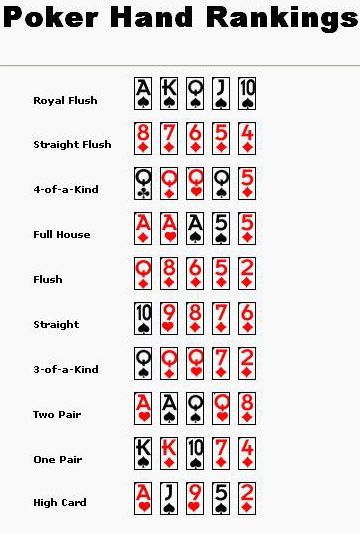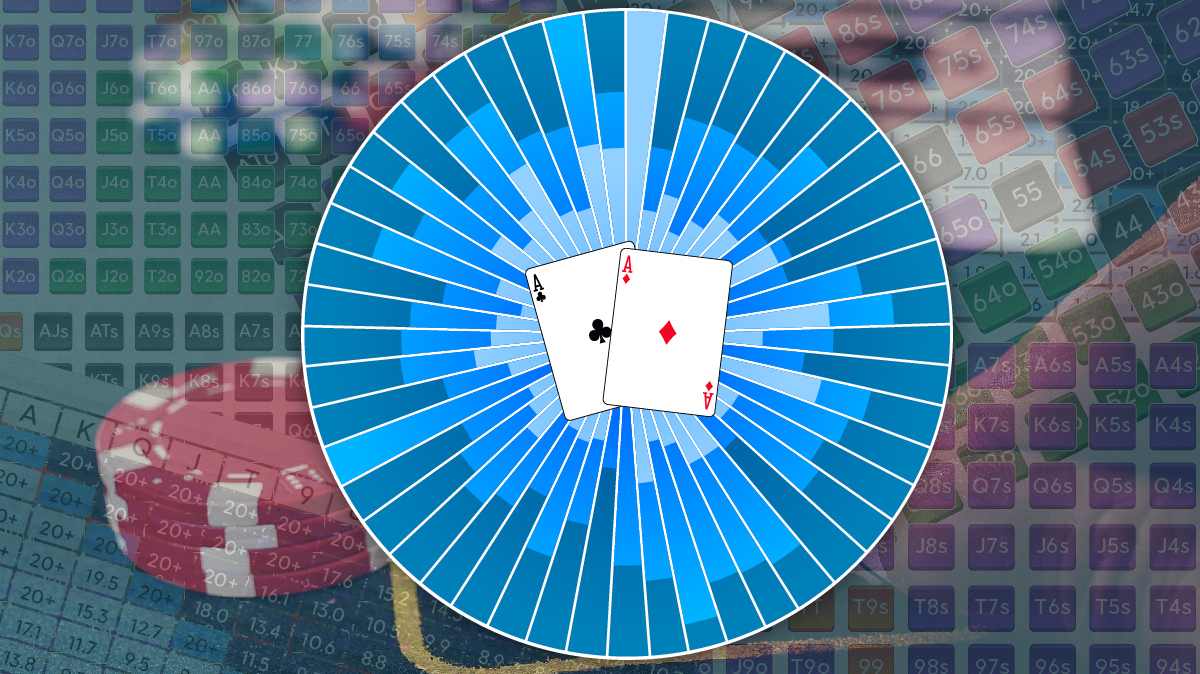Texas Holdem Poker Odds Chart
Texas Hold’em poker is everywhere these days — on TV, online, and in clubs and casinos. Before you sit down to a game of Texas Hold ’em, make sure you’re in good shape to be successful — take care of non-poker issues and check your physical, mental, and financial status. During the game, you need to understand basic odds and playable hands, as well as how to bluff successfully and follow proper poker etiquette. Texas Hold ‘Em also has its own abbreviations for online play.
Playable Texas Hold’em Hands
- Texas Holdem Heads-Up Preflop Odds. This table was created by enumerating through every possible board and opponent hole card combination for each of the 169 texas holdem preflop starting hands.
- Poker Odds - Calculating Hand Odds In Texas Hold'em Poker & Charts. Learning how to properly count your outs and calculate poker odds is a fundamental requirement of Texas Hold'em. While the math used to calculate odds might sound scary and over the head of a new player, it really isn't as hard as it looks.
- Three-Player Power Ratings in Texas Hold ’Em Introduction. The following table ranks the top hands in a 3-player game. This table assumes that all players stay in until the end. Explanation of column headings: Cards: Initial two-card hand. Probability of win: Probability that this hand will win, or tie for the win.
Pocket jacks is known as a big danger hand in Texas Hold’em. It may look good, but the chances of a higher card turning up on the flop is 52%, giving your ‘fish-hooks’ less than half a chance of survival.
Texas Hold’em is a game of strategy, like any poker game, but where you’re sitting in relation to the action becomes part of your strategy when playing Hold’em. If you bet early, you generally need better cards than you do if you’re one of the blinds. The following table offers sound advice on what hands are playable when you’re sitting in different positions.
Questions to Ask Yourself before You Play Texas Hold’em
Whether you’re playing Texas Hold’em for fun or money — make that whether you’re playing for high stakes or low stakes — make sure you’re in a position mentally, physically, and financially to enjoy the game and make the most of your chances. Ask yourself these questions before you sit down to a game:
What is the purpose of my playing this session? Whether it’s to learn more, win money, or just hang with friends for a good time, make sure you know why you’re there and that you’re doing everything you can to accomplish that goal.
If I were to play an opponent who’s exactly the same as a well-rested, un-stressed version of me, would that person have an advantage? If the answer is “yes,” hold off on playing until you’re in a better psychological and physical state.
Can my bankroll handle this level of play? If not, play a lower level.
Are there any distractions in my life that I need to get rid of before I play? Pay your rent, walk your dog, call your significant other — whatever it is, get it out of your head so you can focus.
Do I know if the house I’m playing in has any bonuses for players such as bad beat jackpots, high hands, free food and/or drinks for players, or freeroll tournaments? If not, ask a floorperson before you start playing and find out about the details of how you can qualify.
Is there an aggressive person at the table I’ll be playing at? If so, try to get yourself seated to his left so you see the raises before your action and not after.
What do I know about the people sitting at the table? Whatever it is, use it to your advantage.
Rough Odds for Texas Hold’em
Playing poker is about playing the odds. The following list gives the odds for outcomes in Texas Hold’em hands. When you realize how heavily the odds are stacked against you, you may want to rethink going all-in before the flop with two suited cards. Use the odds to your advantage:
1 percent (1-in-100): Percentage of time that no player holds an Ace or a King at a table in a 10-handed game
1 percent (1-in-100): Percentage of time that if you hold two suited cards, you’ll flop a flush
6 percent (about 1-in-20): Percentage of time that five community cards will give pocket suited cards a flush
6 percent (about 1-in-20): Percentage of time that you’ll be dealt a pocket pair
8 percent (about 1-in-12): Percentage of time that you’ll hit at least trips after having a pair on the flop
12 percent (about 1-in-8): Percentage of time that you’ll flop trips if holding a pocket pair
12 percent (about 1-in-8): Percentage of time that two more cards will flop in the same suit as a suited pocket pair
19 percent (about 1-in-5): Percentage of time that the five community cards will at least trip your pocket pair
32 percent (about 1-in-3): Percentage of time that you’ll pair one of your cards on the flop (with no pocket pair)
33 percent (about 1-in-3): Percentage of time that you’ll make a full house or better after having trips on the flop
35 percent (about 1-in-3): Percentage of time that you’ll make a flush on the turn or river if you have four cards to a flush after the flop
Texas Hold’em Bluffing Tips
What makes any poker game exciting, and Texas Hold’em is certainly no exception, is that players can bluff at any point. Sometimes half the fun of a game is seeing whether you can successfully bluff an opponent out of some money. But, even as you’re misleading your opponents, make sure you bluff in the right circumstances. Heed these bluffing tips:
Only bluff where it makes a difference to your standing — either in a tournament or to your stack of chips.
Be careful bluffing someone considerably worse than you are. He may call just to see what you have, or on some probabilistically low draw when he already has you beaten anyway.
Bluff in situations where the board hints at the great hand you do not have: straights and flushes being hinted at by the board, the turn of an Ace, and so on.
Don’t try to bluff players who only play the most solid of hands if they’re still in the pot.
Don’t bluff people who are extremely likely to call.
Do bluff the timid or people who are likely to fold.
Remember that it’s easier to bluff in No-Limit than Limit because the bets (both implied and real) are bigger.
Poker Etiquette for Texas Hold’em
The etiquette tips in the following list apply to Texas Hold’em and to any other poker game. Sure, you can have fun while you play poker, but you can have all the fun you want without being impolite to the other players or the dealer. Basic poker etiquette includes these tips:
Always play in turn.
Be aware of when it’s your turn to post the blinds and do so promptly.
Any time there is a discrepancy at the table, talk to the dealer — not the other players — about it. If you’re not able to get satisfaction from the dealer, ask for a floorperson. Talking with other players about the problem you perceive may generate ill will among people who have no authority in the situation in the first place.
Place your bets in front of you. Do not splash them into the pot.
Do not show your hand to other players at the table while a hand is in progress.
Tell the dealer when you intend to raise. In No-Limit, gather the amount that you’re going to raise and either announce the total, or move it all forward with one motion. This prevents being called on a “string raise.”
Don’t forget to tip your dealer. Dealers work for minimum wage and rely on tips for their livelihood.
Texas Holdem Odds And Probabilities
Online Poker Abbreviations for Texas Hold’em
Playing online poker in general, and Texas Hold’em in particular, is a very popular pastime. When you’re online, you may encounter abbreviations specific to the world of poker. To understand what other players are saying, get familiar with these online abbreviations:
| Abbreviation | What It Means | Abbreviation | What It Means |
|---|---|---|---|
| 86 | To remove or ban | ne1 | Anyone |
| brb | Be right back | nh | Nice hand |
| gc/nc | Slightly sarcastic phrase meaning good catch/nice catch | gg | Good game |
| lol | Laughing out loud | gl | Good luck |
| nl | No-Limit | ty | Thank you |
| n1 | Nice one | 🙂 | Smiley face (view sideways) |

Play Online Poker
We have tested and rated the best online poker sites and poker providers. All big poker providers have been tested in 12 categories and rated on a scale of 1 to 5.

Objective ranking of all big poker sites by their deposit bonus.
Official poker hands ranking overview with an explanation of which hand wins in Texas Hold’em. Including PDF overview for printing.
Overview of the most common poker probabilities and odds, including preflop odds, outs and formulas to calculate winning chances.
Poker Guides
ICM or “Independent Chip Model” is a method used to calculate the monetary value of chips in a poker tournament. This article explains how the ICM works.
When can I go all-in with a specific hand and how tight should I be in the push fold phase of a tournament? The Sklansky Chubukov tables provide a rudimentary answer to these questions.
When can you profitably go all-in with a hand? Which hands can you call an all-in with? Equilibrium pushbot charts help you develop good all-in ranges.

Chinese Poker rules, strategy and tips & tricks. This article explains how to play Chinese Poker, how to set hands and when to surrender.
Poker Tools
The cashgame variance calculator and simulator for poker is handy and easy to use. Just enter your winrate, standard deviation and the amount of hands to simulate. You’ll most certainly get insightful results.
Texas Hold'em Poker Hand Odds Chart
The Poker Tournament Variance Simulator calculates variance for poker tournaments, MTTs and SNGs. Enter your tournament(s), hit calculate and let the simulator do its magic.
The Online Poker Rake Comparison and Rake Calculator shows how much rake players effectively pay when playing online poker cash games and which poker sites are the least and most expensive.
Texas Holdem Poker Pre-flop Strategy Chart
The pushbot trainer helps you to understand ranges in push-or-fold poker situations and visualizes the Sklansky Chubukov and Nash Equilibrium rankings.
The advanced ICM Deal Calculator can be used to determine ICM and chip chop distributions for deals in tournaments and simplifies poker tournament deal negotiations.
Other Tools & Stuff
How long does it take to achieve the legendary rank in Hearthstone? This handy simulator will answer to this question and show how long it will take to reach legendary depending on your win rate and your current rank.
Play Chinese Poker online against three AI players, analyse your play and find better strategies. This Chinese Poker App works in the browser and requires no download or registration.
Texas Holdem Poker Hands Odds
Best Online Poker Sites
Check our online poker site comparison :

